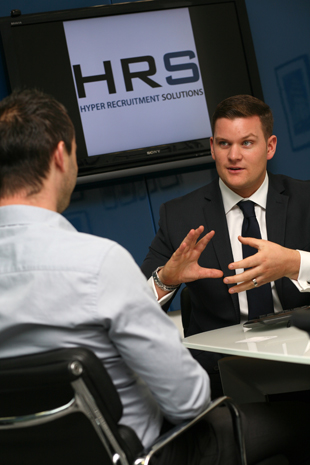So, you’ve finally decided to chase that “dream job", weeks of sending off CVs are starting paying off and the interview offers are starting to come in. Congratulations on making it through to this stage. Now what?
You've researched the company’s background, looked over the job description and rehearsed your answers to the likely questions. Great!
This will certainly help you in the interview, but did you know that the language you use in your responses may well be the deciding factor? As such, knowing how to speak in a job interview is vital.

Preparing for interview
Dressed in your smartest suit, you arrive nice and early, feeling confident. Just one more hurdle to overcome – the actual interview itself.
This is undoubtedly the most daunting part of the whole recruitment process. So, whilst you’re sitting in reception waiting to be called, why not use the time to fill your head with some last-minute positive thinking.
How to speak in interviews
From formal to informal, singe or group, there are many types of interviews, but one that you are likely to come up against is the competency-based interview.
Ever heard that "Tell me about a time when…" question? It probably sounds like a simple question but, during an interview, it’s so easy to forget that answer you've been memorising for days.
When this happens, we often end up missing out key details and usually give a really unstructured answer that’s far from ideal. Don’t worry – we've all been there!
Here at Hyper Recruitment Solutions, we always encourage our candidates to use techniques like ‘STAR’. This model will really help you to formulate a structured response, which will, in turn, ensure you give a well thought out answer.

Here are some examples of how can you use the STAR model to ensure you use the correct job interview language in your responses, keeping your answers both structured and positive.
Talk about challenges
Interviewer: ‘Tell me about a time when you failed at a task.”
Avoid using phrases like “I’ve never failed at anything before” or “I never make mistakes”. We've all faced challenges, both professionally and personally – these responses simply show that you’re lying.
Instead, use this as an opportunity to demonstrate that you are not only capable of dealing with difficult situations but you've actually learnt from the experience and grown as an individual.
Candidate: “When things didn’t quite go to plan, I made sure I…so next time…”
Talk about weaknesses
Interviewer: ‘Do you have any weaknesses?”
It’s a fact: we can’t be good at everything, so there will be something you’re not good at. When you’re asked this question, don’t focus on how bad you are – turn a negative into a positive
Candidate: “I would like to learn…” or “I did…to overcome this challenge in the past" or “I asked a colleague to help me.”
Leave a positive lasting impression
When you walk into the room make sure you introduce yourself and shake hands with the interviewer. Similarly, when you leave, thank the interviewer for inviting you for an interview.
It’s just as important to end on a positive note as it is to make a good first impression.
Why not mention something you came across during your research? Simple things like this will help ensure the interviewer has a positive impression of you.
Candidate: “I noticed that you have a company football team” or "it was great to meet the team – I think I would fit in well."
Bottom line, knowing how to speak in interviews is critical. Using the right job interview language with the correct delivery will ensure you create a lasting impression and a positive experience for everyone. Remember, as I always say, #thinkpositivebepositive. Good luck!
For more interview advice and questions or more information on the right job interview language to use, get in touch using the button below and speak to one of our expert advisors today.
Contact Us
